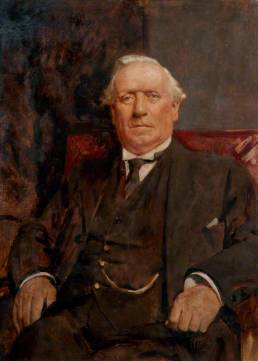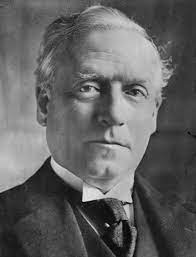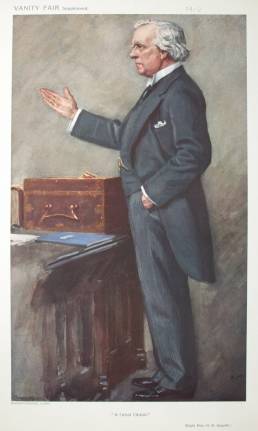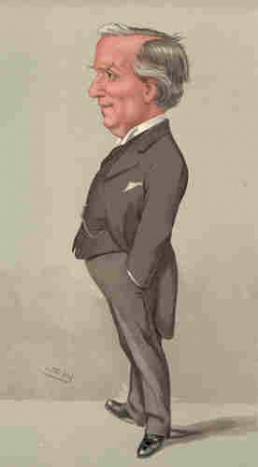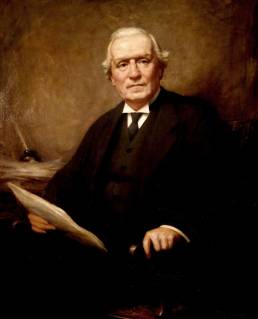Herbert Asquith, 1st Earl of Oxford and Asquith.
1852-1928
Herbert Asquith is chiefly remembered as the Prime Minister who passed the ‘liberal reforms’, which laid the foundations of the welfare state. However, he proved to be an ineffective leader in wartime; arguably his failings then were foreshadowed by his mishandling of the Irish question before the conflict began.
Asquith was brought up in Huddersfield where his family had interests in the woollen trade. After gaining a scholarship to Oxford he qualified as a barrister before winning a safe Liberal seat, East Fife, which he held from1885-1918. He was a formidable parliamentarian; his first ministerial post was Home Secretary under Gladstone, 1892-95. Asquith was a highly successful Chancellor of the Exchequer, 1905-08, and became Prime Minister on the retirement of Campbell-Bannerman in 1908. During his premiership he presided over a highly talented cabinet, 1908-14, which was responsible for the ‘liberal reforms’ and for legislation in 1911 reducing the powers of the Lords.
After narrowly winning two General Elections in 1910, his government, dependent on Irish Parliamentary Party support, introduced the Third Home Rule Bill in April 1912. This was based closely on Gladstone’s bills of 1886 and 1893; it would have granted Ireland limited self-government, creating a parliament in Dublin with 32-county jurisdiction. Politically, the most significant weakness of the measure was its failure to cater for the specific interests of the Ulster unionists, and they succeeded in mobilizing effective opposition to it, attracting much influential support in Britain. Beset by other problems – votes for women, industrial unrest – Asquith is criticised for adopting a ‘wait and see’ strategy in response. After introducing the measure, controversially he took no further initiative until March 1914. Meanwhile, between 1912 -14, attitudes in Ireland hardened and a crisis developed, with the formation of the Ulster Volunteer Force and Irish Volunteer Force and gun-running into Larne and Howth. His belated attempts at finding a compromise solution, March-July 1914, failed hopelessly. The likelihood of civil conflict was only averted by the outbreak of war in Europe, when both the nationalist and unionist leadership agreed to postpone a settlement of the Irish question until after hostilities had ceased. This did not prove possible however. After the Easter Rising, Asquith exercised some influence to prevent the execution of more of the rebels. At the same time, he initiated negotiations with the intention of immediately granting home rule to Ireland but these ended without agreement.
Asquith proved to be an ineffective British wartime leader, his party split and he resigned from the premiership in 1916; he never again held political office. He died in 1928.
Lesson Plans
Link 1
Link 2
Link 3
Useful Links
Link 1
Link 2
Link 3



